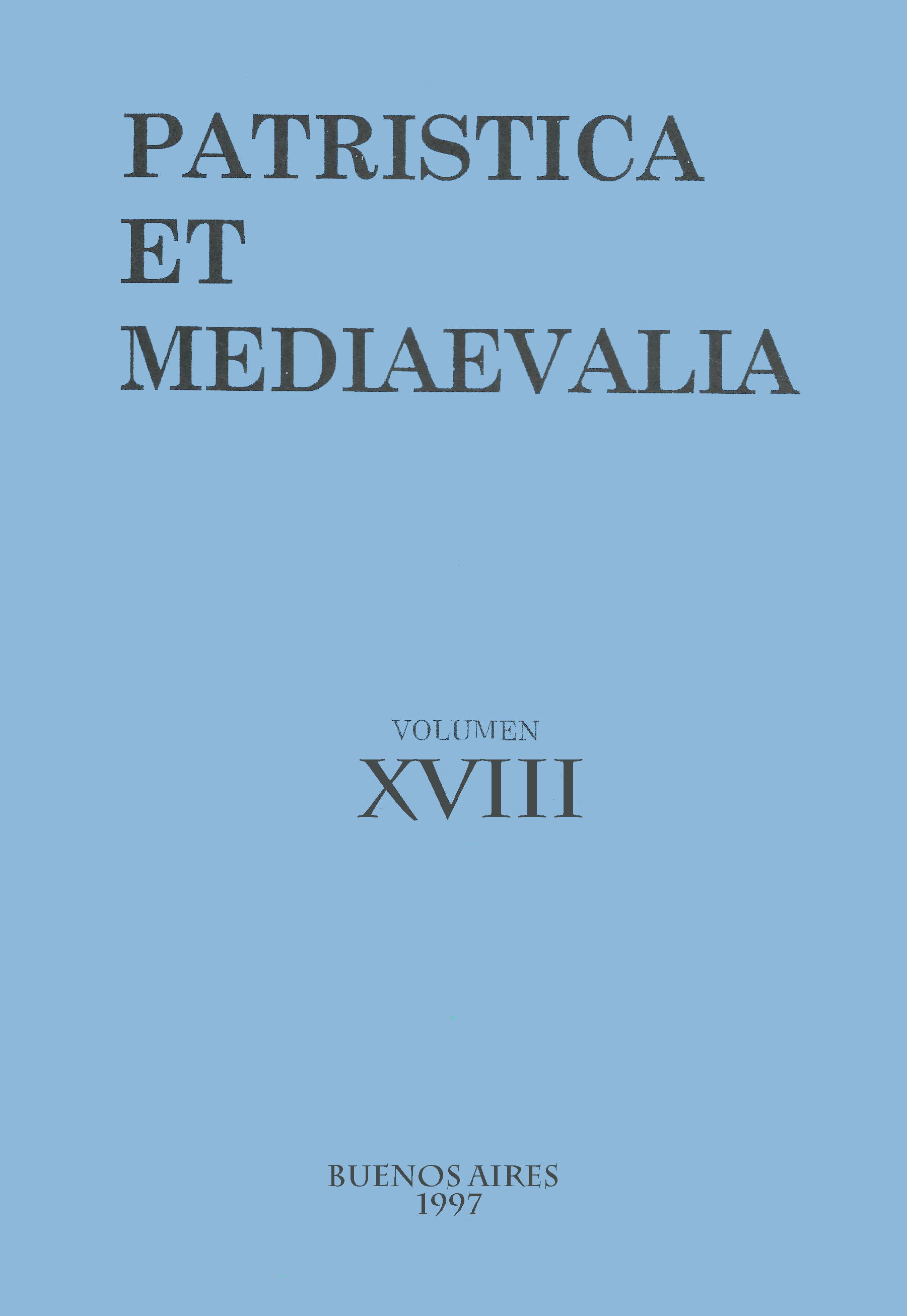The Definitions of Nature in Boethius (2nd Part)
Abstract
In this second part the author’s aim is to try to determine the meaning of natura in the definition of persona. He compares his interpretation with others and concludes that the word, in that definition, signifies “essence” or “specific difference”. Then, he pays attention to all the places where “nature” appears, and he determines when the word must be interpreted in the sense of substance and when in the sense of essence. The general conclusion is the following: since natura in the fifth theological Tractate is an equivocal term, Boethius’ four definitions of nature must be considered as a result of a division of a word in its meanings, not of a genus in its species or a whole in its parts. However, the three first definitions or descriptions can be included into one class (to on), while the fourth belongs to another quite different one (to eidos).Downloads
1. The authors who publish in this magazine accept the following conditions:
-
They retain the copyright and grant to the magazine the right of the first publication, with the work registered under the Attribution-ShareAlike 4.0 International License that allows third parties to use what is published as long as they mention the authorship of the work and the first publication in this magazine.
-
They can make other independent and additional contractual agreements for the non-exclusive distribution of the version of the article published in this magazine (eg. include it in an institutional repository or publish it in a book) provided that they clearly indicate that the work was first published in this journal.
-
They are allowed and recommended to publish their work on the Internet (for example on institutional or personal pages).
2. AutoArchive Conditions. Authors are allowed and encouraged to distribute post-print electronic versions of their manuscripts because it promotes their circulation, a possible increase of quotation and a major reach among the Academic community. Color RoMEO: blue.













